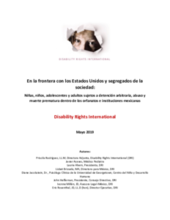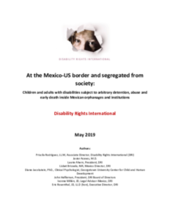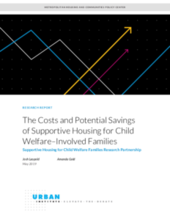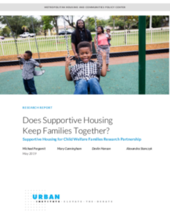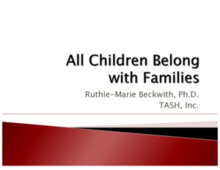Displaying 991 - 1000 of 2221
This full-day workshop offers the opportunity to walk through the steps of the process to transition from residential to family-based care using a fictional case study and interactive small group discussion.
The Global Social Service Workforce Alliance hosted the 6th Annual Social Service Workforce Strengthening Symposium on the topic of using evidence as a catalyst for advocacy efforts to support the social service workforce.
The objectives of this study were: (a) to measure the time-to-initial placement change in different types of settings, including non-relative foster homes, kinship care, residential treatment centers (RTC), group homes and other types of settings; and (b) to identify predictors of the initial placement change.
Global Child Advocates is holding a training for social workers to support reintegration of children from institutions to family-based care.
Disability Rights International (DRI) llevó a cabo dos investigaciones en Baja California, México –la primera en noviembre de 2018 y la segunda en febrero de 2019, visitando a cuatro instituciones privadas en las que se encuentran niñas, niños, adolescentes y personas –incluidas personas migrantes– con discapacidad. Este informe presenta los resultos de esta investigación.
Disability Rights International (DRI) carried out two investigation trips to Baja California, Mexico, in November 2018 and February 2019, visiting four residential, private institutions for children and adults – including migrants - with disabilities. This report presents the findings from these investigations.
This study evaluated the effectiveness of the US Department of Health and Human Services’ Administration for Children and Families funded Partnerships to Demonstrate the Effectiveness of Supportive Housing for Families in the Child Welfare System, a five-year, $25 million demonstration that provided supportive housing to families in the child welfare system, in five sites. This report summarizes the results of the cost study, which estimates the costs of the housing and services offered in the demonstration and any savings, or additional costs, resulting from the demonstration’s effects on families’ use of homeless programs and child welfare services.
This report provides findings from the Urban Institute's impact analysis of a program that provided supportive housing to families in the child welfare system in the US.
This opinion piece from the Boston Globe, written by a former foster youth, Stan Rosenberg, describes the ways in which the child welfare system in the US state of Massachusetts often fails foster children.
This presentation was given at Disability Rights International and the European Network on Independent Living's webinar on the right of all children to a family by Dr. Ruthie-Marie Beckwith.

